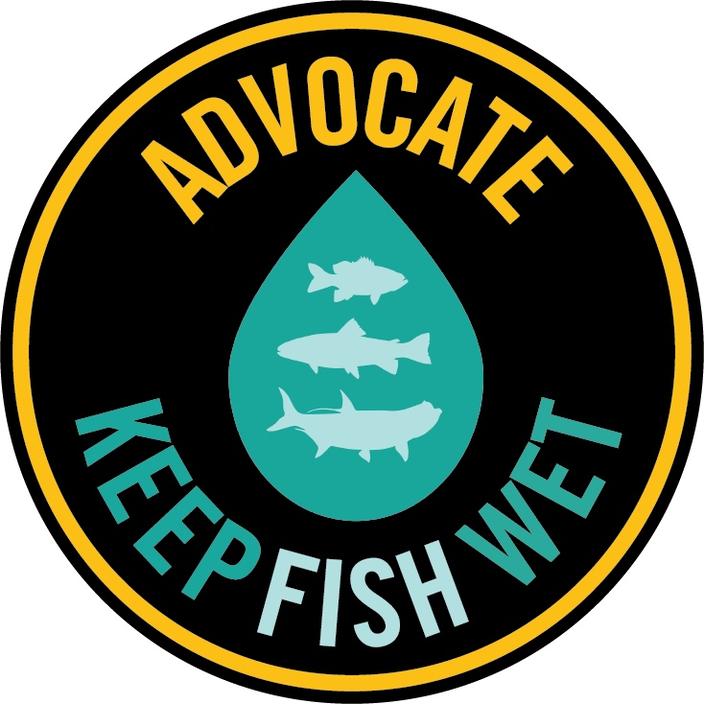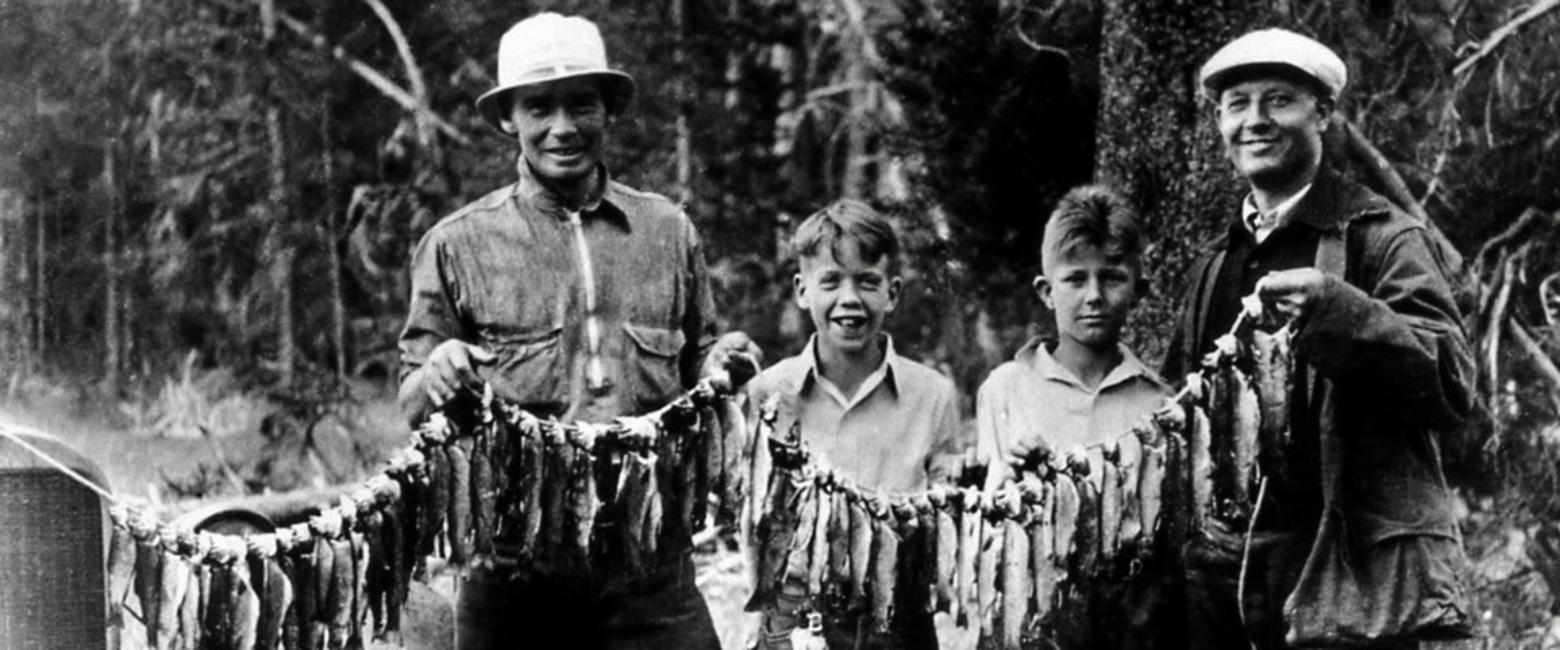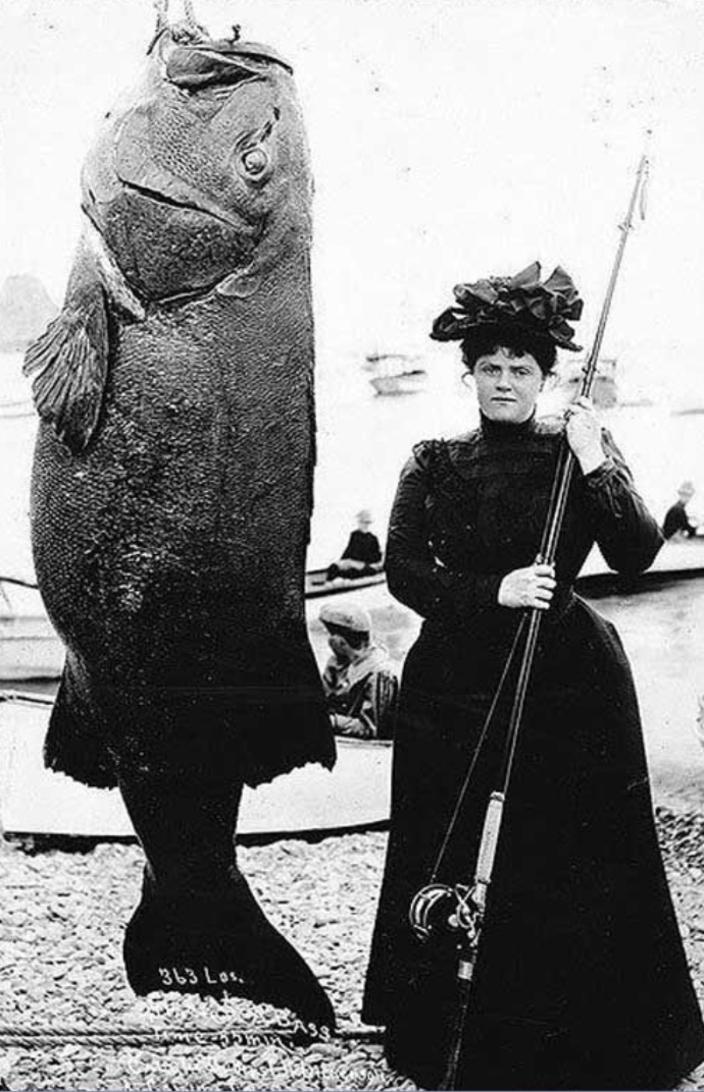TOM SADLER: It’s pretty simple. If you catch a fish, you want to be able to prove it. You’ve heard the old saw, “all fishermen are liars,” so with that kind of reputation, fisherman feel compelled to document the event. Where the problem for the fish comes in is when fish are tossed up on to the bank, the angler digs around for the camera, poses with the fish, then chucks the fish back into the water. That sure is not good for the fish.
WILKINSON: In angling parlance, some refer to it as "the hero shot." Can you explain the meaning of that?
SADLER: The so-called hero shot is holding up the fish out of the water, out in front of your grinning mug. It “proves” you caught the fish. It’s an age-old practice and back in the day when folks keep all the fish they caught, it really wasn’t doing any more harm to the fish. It was dead or headed that way. As anglers and practices evolved, and catch and release became more prevalent, fish handling practices were revisited and those where the fish was out of the water for a long time were questioned.
SADLER: Thinking about fishing from the perspective of the fish is never anti-fishing in my book, just the opposite. It was Lee Wulff, a vocal proponent and likely the originator of catch and release, who said, “gamefish are too valuable to be caught only once.” The logical inference is if you are going to release a fish you want it to live. That means you handle the fish with care and respect. Good anglers and guides know fish handling techniques are a skill you need to learn and use.
WILKINSON: I’ve heard fish referred to as a “renewable resource,” especially trout populations like we have in Montana where streams are not stocked and rather the emphasis is on nurturing conditions for wild, river-born fish to thrive with plenty of quality habitat…
WILKINSON. Another topic involves humans showing empathy for the fish that when it is taken out of the water for a picture the angler then holds one's breath. Please explain.
SADLER: It’s a pretty simple concept. If you take a fish out of water you are forcing it to hold it’s breath. So, fair’s fair. If you want a “hero shot” or some such with the fish out of water then when you take the fish out of water, take a breath and hold it. When you need a breath, then the fish does too.
WILKINSON: For the record so that readers understand, I fish; have my whole life; it's part of the imprint of nature made early and I cherish the memories. Saying this, and having conversations with people in the angling community whom I admire, there's also this reality: Often ignored is the fact that with catch and release fishing, we are using fish as objects for our personal entertainment and pleasure. They do not ask to be dragged from the water nor participate in a likely painful activity over and over again if they survive. I realize that to fish is to rationalize. Do you wrestle with this too?
SADLER: You’re digging deep with that question. Yes, In the last few years I have wrestled with it. On one level there is no explanation that will make sense to all people. And I can live with that. The reason I fish is for what it does for me. It is, as you said part of the imprint nature made on me at the start of my life. I respect the fish, the habitat and the opportunity. For me it goes way beyond entertainment and pleasure although those both are benefits. It is the excuse or justification or rationalization to get out to the wild. Where I fish and how I fish are what gets me outdoors and ground me. As Robert Traver wrote, “Because, in a world where most men seem to spend their lives doing things they hate, my fishing is at once an endless source of delight and an act of small rebellion.”
The "collateral benefits" to the ecosystem are part of the justification or rationalization for my fishing and guiding. Because I care so much for fishing and the places I fish, I do a fair amount to protect them. Would I put the same effort into protecting those places if I didn’t fish? Likely not. I suspect that is true of many anglers.
WILKINSON: What's the greatest personal epiphany that fishing has ever given you?
SADLER: The greatest personal epiphany has to be how much I love being out there fishing, either alone, with friends or with clients. I’ve been fly fishing for more than 50 years and I was just as excited to go out last week as I ever was. Nothing else I do comes close. I fear losing it, so I fight hard for it.
WILKINSON: When you are guiding, say, a stressed out corporate executive who is tiered to constantly competing, either in the marketplace or on the golf course with associates, how do you help them shift away from thinking about fishing only as an endeavor of how many fish they hook or how large?
SADLER: That may be the hardest puzzle in guiding for me. I like to move the conversation toward the experience rather than the numbers. I’m pretty up front about it with all my clients at the start of a trip. I like to know what their expectations are. If they are looking for numbers, I give them a realistic response then, as the day goes on, I talk about the fishing experience when they catch one. What they did, how hard or easy it was, what the fish did, what the client felt and learned. Often enough they start seeing the bigger picture.
SADLER: I think I’m lucky that way. I know that the places I fish, are for the most part, beautiful places, so I don’t have to push myself. I’m usually pretty good about situational awareness and having a sense of what is around me, so I take advantage of that and spend time appreciating my surroundings and enjoying the comfort and solace of those surroundings.
WILKINSON: So, can we also go hunting and fishing with the intent to not solely see how well our aim is or whether we can match a hatch and get fish to rise to the artificial fly?
SADLER: Here’s what we can learn. Don’t settle for one reason to go outdoors. There are so many more reasons to get out there and enjoy it, learn from it, become humbled by it. As Edward Abbey said, “breathe deep of that yet sweet and lucid air, sit quietly for a while and contemplate the precious stillness, the lovely, mysterious, and awesome space.”
The great outdoors is easy to take for granted, especially one that has healthy fish and wildlife populations. If we don’t learn or re-learn to appreciate the intrinsic value of nature we will wake up one day and it will be gone or taken away from us.
The Link Lonk
March 23, 2021 at 09:19PM
https://ift.tt/3u0rvMv
Fishing's 'Hero Pose': How Do The Fish Feel? - Mountain Journal
https://ift.tt/35JkYuc
Fish



No comments:
Post a Comment